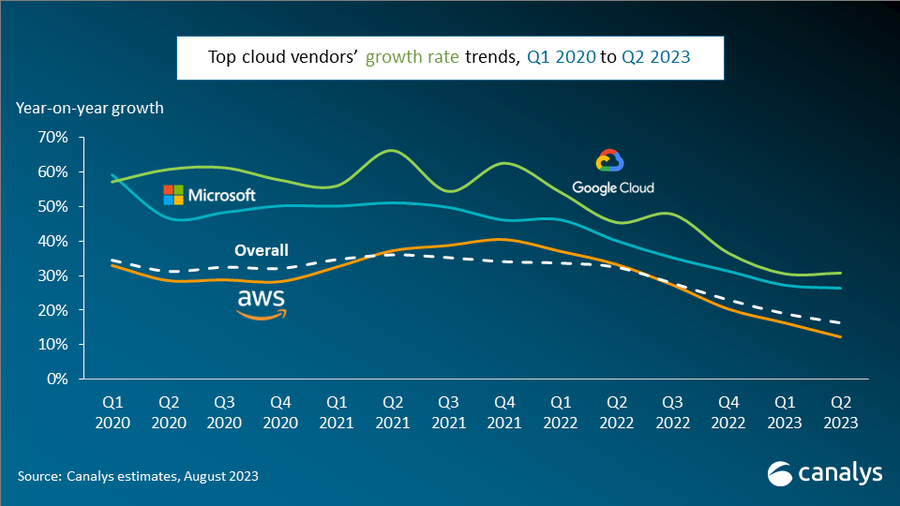Using the Possible of Cloud Services for Competitive Edge out there

Benefits of Cloud Services

Cost-efficiency is an additional considerable advantage of cloud solutions, as business can avoid large ahead of time investments in equipment and software program. Rather, they can select a pay-as-you-go version, only paying for the sources they consume. This cost-effective strategy makes it possible for organizations to assign funds a lot more purposefully, spending in other locations that drive development and development. Overall, the advantages of scalability, cost-efficiency, and adaptability make cloud services a beneficial asset for firms seeking an one-upmanship in today's dynamic market landscape.
Cloud Migration Approaches
Cloud migration needs precise planning and seamless execution to make sure a smooth shift of electronic properties to cloud-based environments. One usual strategy is the "Raise and Change" approach, where existing systems are relocated to the cloud without considerable alterations.
Conversely, the "Replatforming" strategy involves making minor adjustments to applications to optimize their performance in the cloud atmosphere. This technique strikes an equilibrium in between rate and optimization, permitting companies to benefit from cloud capacities while minimizing disruptions.
For more facility systems, the "Refactoring" strategy, also understood as "rearchitecting," includes redesigning applications to be cloud-native. While this technique requires more time and sources, it can make best use of the benefits of scalability, adaptability, and cost-efficiency that cloud platforms provide.
Inevitably, selecting the appropriate cloud movement approach relies on elements such as the organization's objectives, budget plan, timeline, and technical needs. By very carefully assessing these factors to consider, services can successfully change to the cloud and gain an affordable edge in the marketplace.
Enhancing Data Safety And Security Measures
After executing cloud migration approaches, companies need to focus on enhancing information security measures to guard their digital assets efficiently. Cloud Services. Data security is critical in the digital age, especially when leveraging cloud solutions that entail transferring and storing sensitive information.
Regular safety and security audits and vulnerability evaluations are crucial to recognize and resolve any kind of weak factors in the data security infrastructure promptly. Educating staff members on ideal techniques for information protection and enforcing strict gain access to controls can additionally minimize the threat of interior data breaches. By spending in durable information safety and security steps, companies can impart count on amongst their stakeholders and customers, inevitably acquiring an one-upmanship in the market.
Leveraging Cloud for Scalability
Implementing cloud solutions allows organizations to dynamically readjust resources according to require, boosting scalability and maximizing operational efficiency. Scalability in the cloud context refers right here to the capacity to promptly and quickly increase or decrease resources as needed, offering companies with the versatility to satisfy altering demands. Cloud systems provide scalability via attributes like auto-scaling, which automatically adjusts sources based upon predefined conditions such as boosted web traffic or work spikes. This ability removes the requirement for companies to invest in added hardware or software program that might stay underutilized throughout normal operations.
Additionally, leveraging cloud scalability makes it possible for businesses to respond quickly to market fluctuations, seasonal demands, or unexpected growth, ensuring undisturbed service distribution without sustaining unneeded prices. By scaling sources up or down in real-time, companies can keep optimum efficiency degrees while managing expenditures. Scalable cloud solutions encourage firms to introduce quickly, deploy new applications efficiently, you could try these out and adapt to evolving business demands with dexterity. On the whole, embracing cloud scalability is a tactical relocation that promotes competition and settings organizations for sustainable growth in today's dynamic market landscape.

Implementing Cloud-Based Collaboration
Collaboration in modern company environments has gone through a substantial makeover via the integration of cloud-based technologies. Cloud-based collaboration tools have actually changed the way teams collaborate, providing real-time interaction, document sharing, and task monitoring capacities no matter of physical place. By executing cloud-based collaboration solutions, companies can boost performance, increase performance, and enhance operations.
Among the key benefits of cloud-based cooperation is its ability to break down communication obstacles among employee. With attributes like instantaneous messaging, video conferencing, and digital whiteboards, employees can work together perfectly and stay linked no matter where they lie. Cloud-based cooperation tools facilitate very easy access to shared documents and sources, making it possible for group participants to work together on tasks in a simultaneous way.
Moreover, cloud-based collaboration advertises versatility and agility within companies by allowing remote job and fostering cross-functional synergy. Employees can work together in real-time, share responses promptly, and make decisions jointly, leading to quicker improved and analytical technology. Generally, implementing cloud-based partnership is important for modern-day companies aiming to remain competitive in today's busy and interconnected market landscape.
Verdict
Finally, the use of cloud solutions provides many advantages for organizations looking for an affordable edge out there. By applying cloud migration techniques, boosting data protection procedures, leveraging scalability, and making use of cloud-based collaboration, organizations can improve performance, decrease costs, and remain in advance of the competition. Welcoming the capacity of cloud solutions is necessary for organizations seeking to succeed in today's quickly advancing business landscape.
The capability to harness the capacity of cloud services provides services various benefits, from boosted dexterity and scalability to boosted partnership and data protection. As companies navigate the intricacies of cloud migration and explore cutting-edge methods to leverage cloud modern technology, the inquiry occurs: How can companies effectively make use of cloud solutions to not only keep up with however also exceed their competitors in the vibrant marketplace?
In addition, the versatility offered by cloud solutions enables organizations to access information and applications from anywhere, advertising remote job and partnership amongst teams i thought about this found in different geographical places. - linkdaddy cloud services
By applying cloud migration strategies, enhancing information security procedures, leveraging scalability, and utilizing cloud-based partnership, organizations can improve performance, reduce expenses, and remain ahead of the competitors. Embracing the possibility of cloud solutions is necessary for organizations looking to succeed in today's swiftly progressing business landscape.